Let’s Talk About the Heroic Latinas (and one Karen) of ‘Blue Beetle’
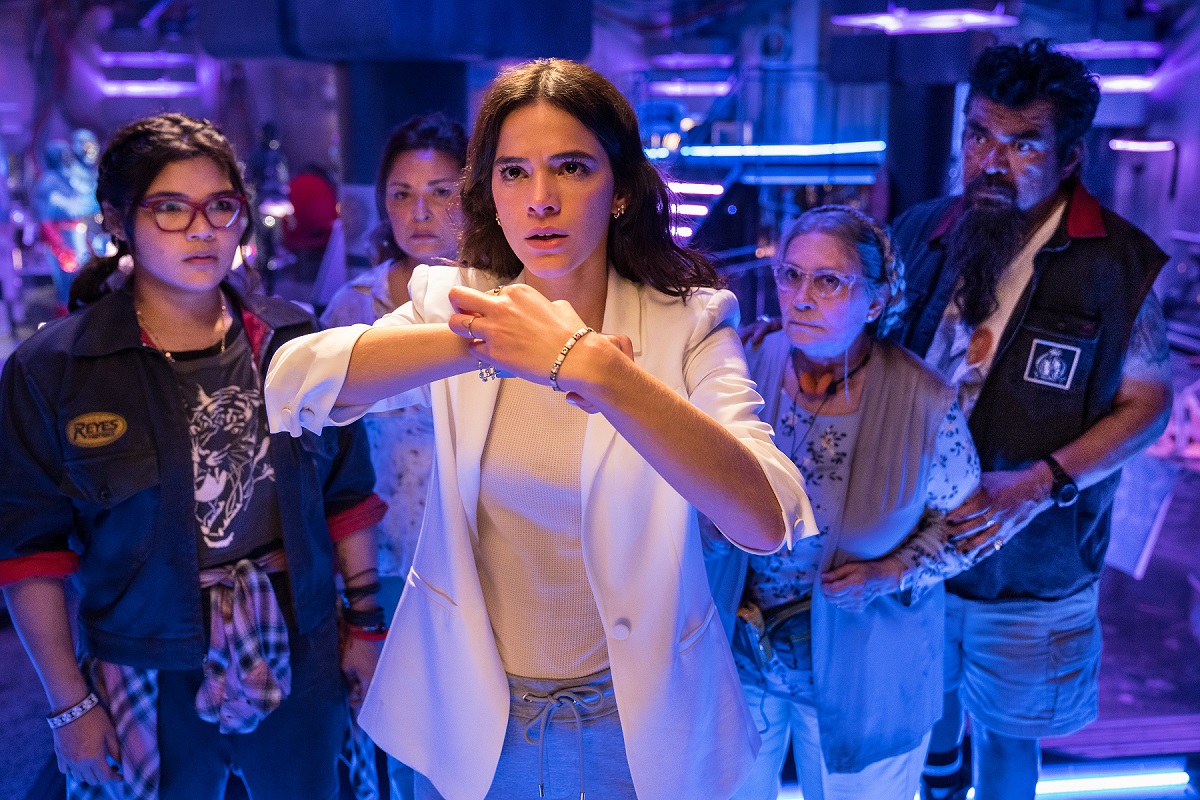
One of the many wonderful things about Blue Beetle, in addition to its humor, and socio-political commentary, is that it’s such a woman-heavy film. While there are four prominent men in the film, there are five women in major roles (six if you count an important voice-over), without whom the story wouldn’t have succeeded in the same way.
**SPOILERS for Blue Beetle. You’ve been warned.**
Victoria Kord (played by Susan Sarandon)
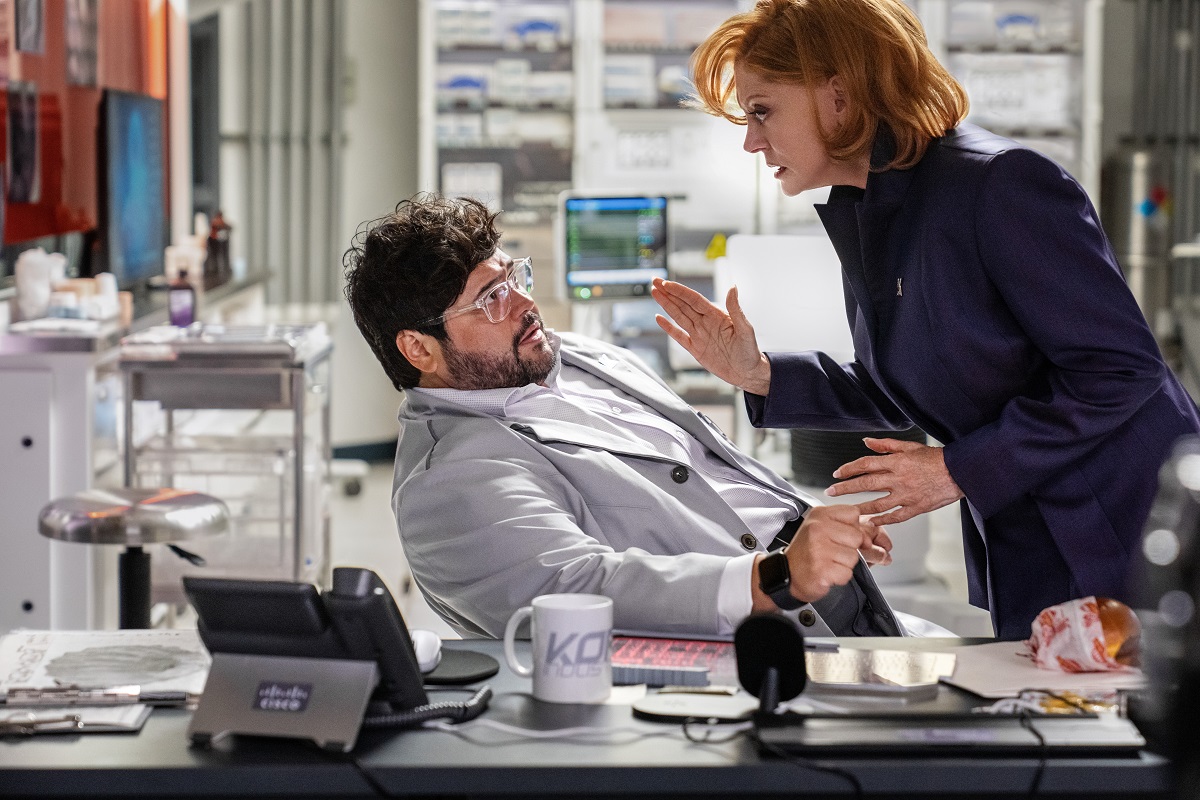
Blue Beetle adding Victoria Kord to the mix allowed the film to delve into incisive commentary it might not have been able to otherwise.
Victoria’s motivation comes from the fact that she helped build Kord Industries, but that when it came time to choose a successor, she was overlooked in favor of her nephew, Ted. Whether this was because of sexism, or because of the direction she wanted to take the company in, it’s easy to understand how she’d be motivated to build the company in her image.
However, the fact that Victoria is a white woman in a Latine film allows Blue Beetle to explore both white saviorism and white feminism. Victoria calls one of her scientists (played by Harvey Guillén) “Sanchez,” even though that’s not his name, and treats him like ‘The Help’ even though she’s reliant on his expertise.
Her relationship with Carapax, who is Guatemalan, is textbook white savior: I found you when you were nothing and saved you. You should be grateful. Never mind that she was responsible for Carapax’s troubles in the first place. This allows for nuance in Carapax’s story. He is as much a victim and fodder for Victoria’s plans as Jaime. Part of what makes the story compelling is wondering if he’ll wake up to that fact.
Through Kord Industries, Victoria is gentrifying all of Palmera City as blue collar folks, mostly of color, suffer. What she did in Guatemala, she’s happy to do everywhere. Her experience of sexism has made Victoria happy to oppress other marginalized people to get her due. All while playing by White Supremacist Patriarchy’s handbook.
Jenny Kord (played by Bruna Marquezine)
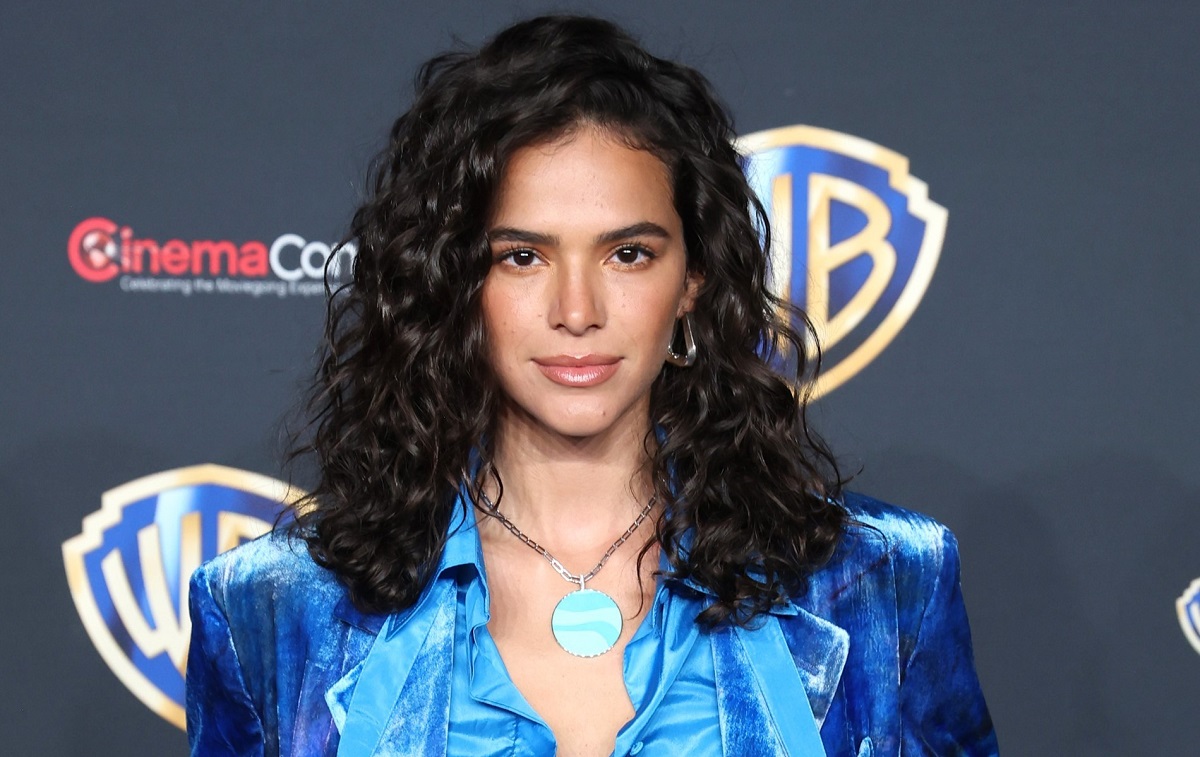
Despite being the “love interest,” Jenny is a fully fleshed-out character with her own connection to the story outside of Jaime. She’s the reason he gets the scarab to begin with, not in a “woman existing to forward the man’s story” kind of way, but because she’s already begun taking action against her great-aunt, seeing Victoria as an affront to her father’s values. Jenny’s in the middle of taking action against Victoria when a situation arises giving her no choice but to thrust the scarab (hidden in a take-out box) into Jaime’s hands and hoping for the best.
Later, we get to know her even more as she opens up to Jaime, and she talks about her feelings about her mother’s death and her father’s disappearance. When she eventually becomes the new CEO of Kord Industries, she is determined to execute her own vision for the company in alignment with her values. Jenny is always her own person.
She’s also Brazilian, which provides a Latina alternative to the Spanish-speakers. She not only speaks Portuguese, but teaches some to Jaime, something you rarely see in a “Latine” project that isn’t set in Brazil or from a Brazilian filmmaker.
Lastly, it was interesting to see Victoria not only have a conflict with Jaime, but a separate conflict with Jenny, the daughter of her greatest obstacle. Having a major conflict between these two women that existed before Jaime and continued beyond Jaime was awesome to see in a superhero film.
Milagro Reyes (played by Belissa Escobedo)
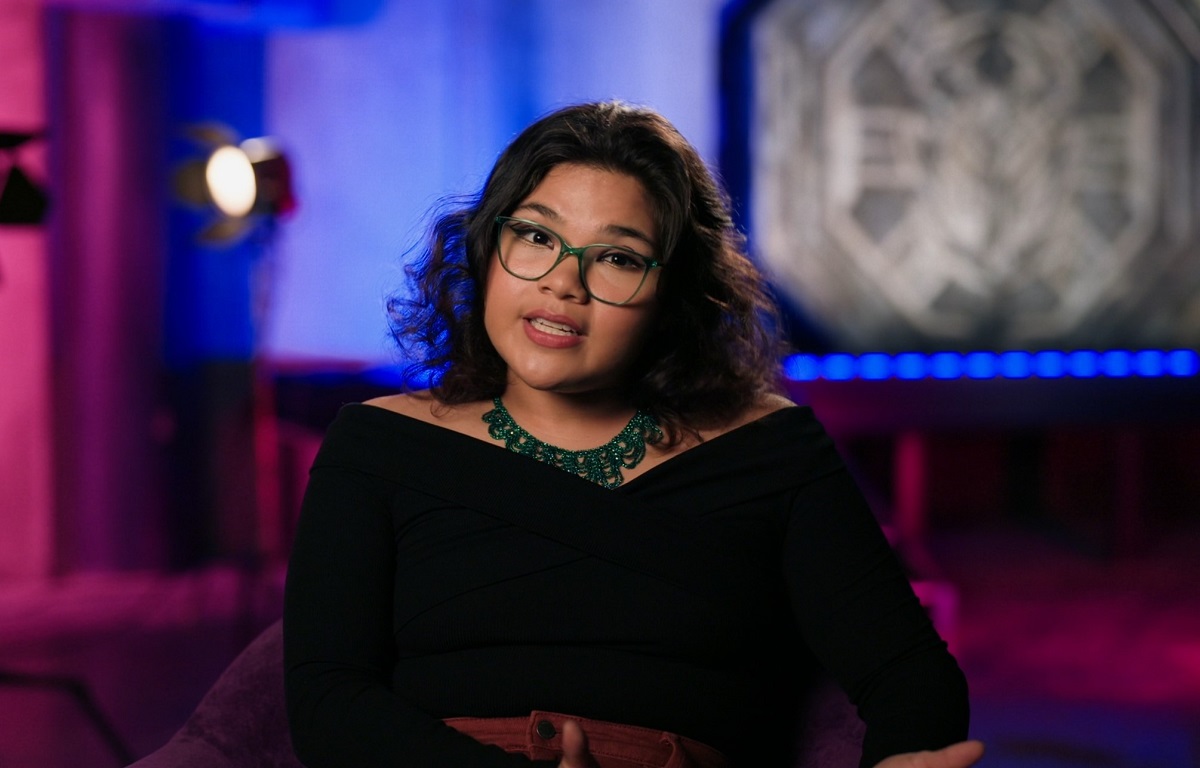
In the comics, Milagro Reyes is a young child. But in the Blue Beetle film, Jaime’s younger sister is only a few years younger than he is. This closeness in age allows the siblings to have a deeper relationship on equal footing. It also allows Milagro to take greater part in the main adventure, because the adults aren’t preoccupied with her safety as they might be if she were a younger kid.
Milagro often acts as the voice of reason (or cynicism) when Jaime drifts too far into optimism. Her dark sense of humor makes Milagro hilarious without being a joke. She’s smart, incisive, and completely invested in her family. It’s refreshing to see on-screen siblings having a good relationship, rather than seeing each other as an obstacle or an annoyance. Jaime trusts her opinion and leans on her for advice.
She’s also a hero in her own right. When Milagro eventually gets a shield/weapon gadget in the film (which kinda looks like a Nintendo Power Glove, fitting with the 1980s aesthetic of the film), she holds her own, and you can see the possibility of her becoming an awesome partner/sidekick to Blue Beetle.
Lastly, I love that she’s not skinny and represents all the emo/goth/rockabilly Latinas! Media not only needs more Latine representation, but diversity within that. The Reyes family is a diverse group, with some having lighter skin and others being darker with a more Indigenous look. I see Latinas who look like Milagro all the time, and it’s great to see those young women reflected on screen. Equally cool is seeing a Latina with Milagro’s sensibility. She seems like she’d listen to a lot of My Chemical Romance and Paramore, but still loves Selena and sings along with the theme song to Maria la del Barrio.
Nana Reyes (played by Adriana Barraza)
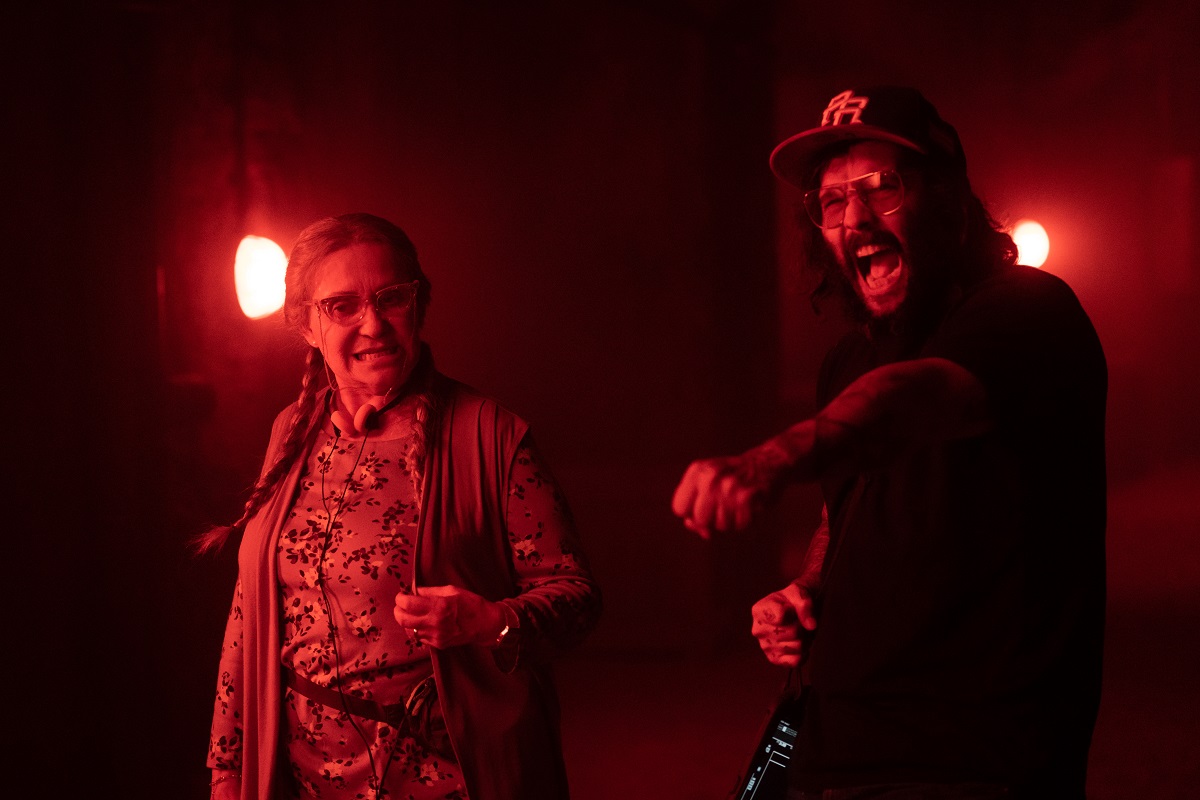
When we first meet Jaime’s grandmother, Nana, she checks all the boxes for “Film Abuelita.” She’s tough, but loving. She speaks words of wisdom. She’s there in the first place, because of course no Latine family’s household is complete without extended family, like a grandmother and an uncle.
However, in the middle of the film we learn that Nana had a whole other life as a revolutionary in Mexico that allows her to click into action when the proceedings require coming up with a rescue plan and handling enormous guns. Nana suddenly becoming an action hero shocks and inspires her grandchildren. It’s a delightful surprise to see an older woman get to have action hero moments, and Barraza absolutely sells it. If I were one of her grandchildren, I’d demand to hear more about her badass, commie revolutionary past immediately!
Rocio Reyes (played by Elpidia Carrillo)
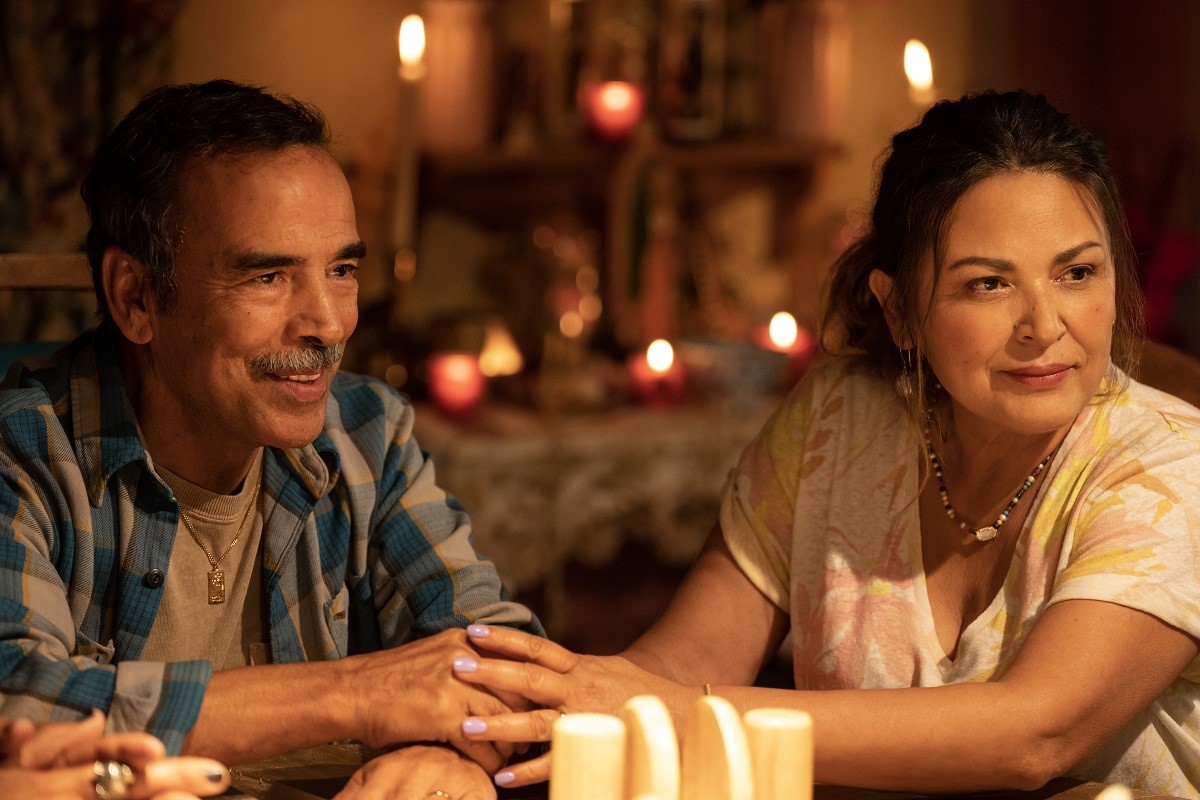
Jaime’s mother Rocio, played by Elpidia Carrillo, is the least well-defined female character of the bunch. However, the story focuses on the younger Reyeses and Uncle Rudy, so it’s incredible that any of the other family members are as nuanced and lived in as they are in Blue Beetle. Despite that, Rocio has an inner life, contributes to the family heroics, and never feels like a trope-y, “long-suffering Latina mother.”
Also, despite Uncle Rudy and Nana living with them, when Jaime’s father Alfonso tragically dies in the film, Rocio is left to be a single parent. If there are sequels, and I hope there will be, she will be Jaime and Milagro’s guiding influence moving forward, and she’s a great one.
Khaji-Da, aka The Scarab (voiced by Becky G)
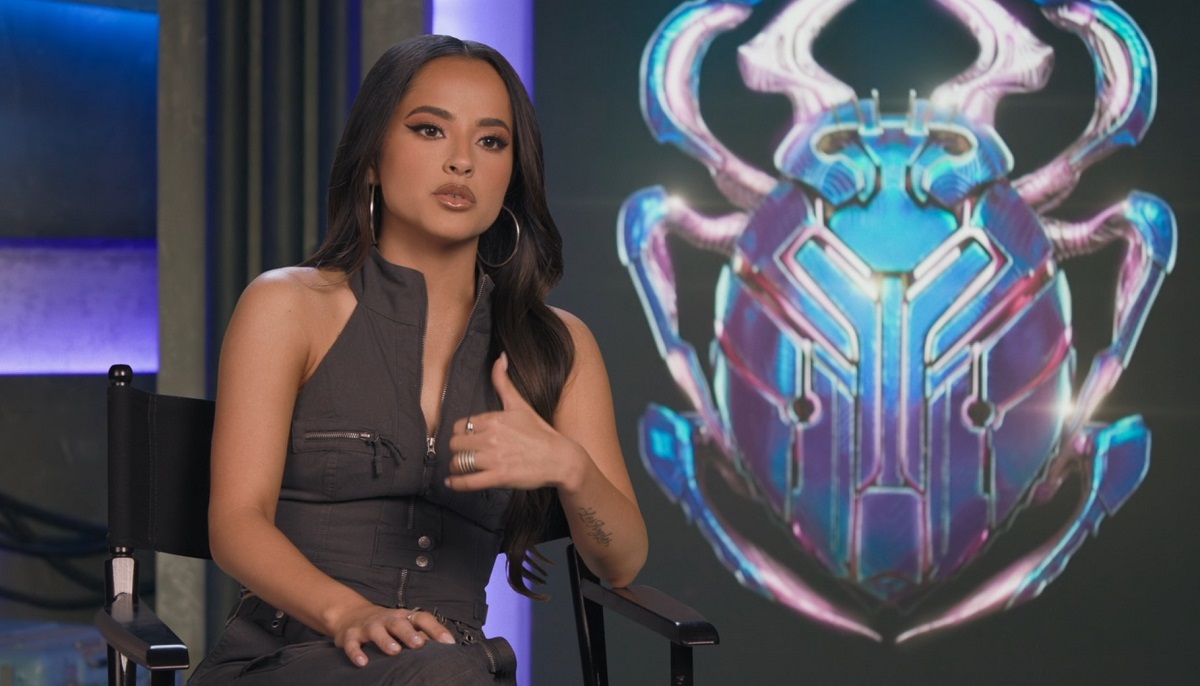
There’s one powerful Latina film that we hear, but don’t see. The scarab is sentient and has its own personality. When it speaks to Jaime, it’s with a feminine voice, and she reveals that her name is Khaji-Da (voiced by Mexican-American pop star, Becky G).
Similar symbiotic relationships in film between heroes and the tech/alien symbiotes to which they’re bound have generally been between men: like Frank Castle and Venom, or Iron Man and J.A.R.V.I.S. Having a feminine piece of biotech in a symbiotic relationship with a young male character is an intriguing and uncommon dynamic. While Spider-Man briefly had a female-voiced A.I. in his suit he called Karen (Jennifer Connelly) in Spider-Man: Homecoming, theirs wasn’t a symbiotic relationship, nor a permanent one.
Jaime Reyes always had his father and uncle as strong male presences in his life. However, he also grew up surrounded by strong Latinas guiding him into adulthood, and the men in his life respecting those women. There’s not a trace of ‘machismo’ in that house.
Now, Jaime has a woman’s voice permanently in his head, with whom he can share ideas about how best to be a hero, and they have to trust each other and collaborate. It’ll be interesting to see how their relationship develops.
Every young man, Latino or not, should see Blue Beetle if only to see an example of the benefits of having mentors, role models, and friends of all genders providing multiple perspectives. Young men don’t need older men teaching them how to “be men.” They need kind, vulnerable, knowledgeable people in their lives teaching them how to be adults.
(featured image: Warner Bros. Pictures)
Have a tip we should know? [email protected]